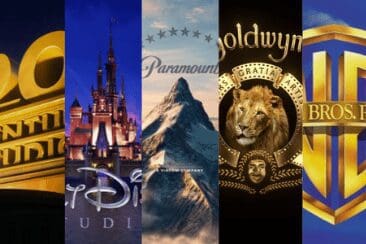If you’re a bit of a film geek like us, chances are you’ve probably watched the credits at the end of a movie. Like us, you’re sure to be marvelled by the number of people involved in putting together a film. But, also at the range of weird and wonderful jobs and job titles needed on a film set. If you’ve ever wondered “what does a production coordinator do?” today is your lucky day!
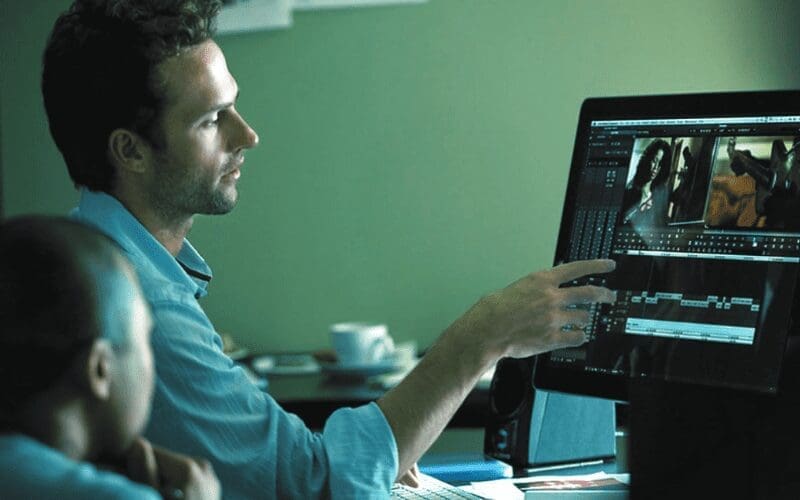
In this article, we’ll delve into the production coordinator job description and cover what a typical day might look like. We will also give you an overview of a production coordinator’s salary and how to become a production coordinator.
Let’s dive in!
What Is A Production Coordinator?

While it’s perhaps not as glamorous as some of the other roles in film, it’s no understatement to say that without a production coordinator at the helm, most films would never get made.
In a nutshell, a production coordinator (sometimes referred to as a Production Office Coordinator) is responsible for organising all aspects of shooting a film. As you can imagine, this is a huge job to make it all run smoothly.
In most cases, they will start work during pre-production. However, they get really busy during the actual shooting (production) phase. They tend to start the wind down of their tasks as the film gets closer to a final wrap.
What Does A Production Coordinator Do?
Production coordinators set up a production office. They are responsible for organising everything; from travel arrangements and hotels to booking locations and equipment. They are also responsible for sorting out visas for the cast and crew and even making arrangements for things like catering.
All of this has to be done in line with the complex beast that is the budget of a movie.
As you can see, a production coordinator job description is pretty varied. Here are a few of the key tasks a production coordinator might encounter during a typical working day.
Scheduling
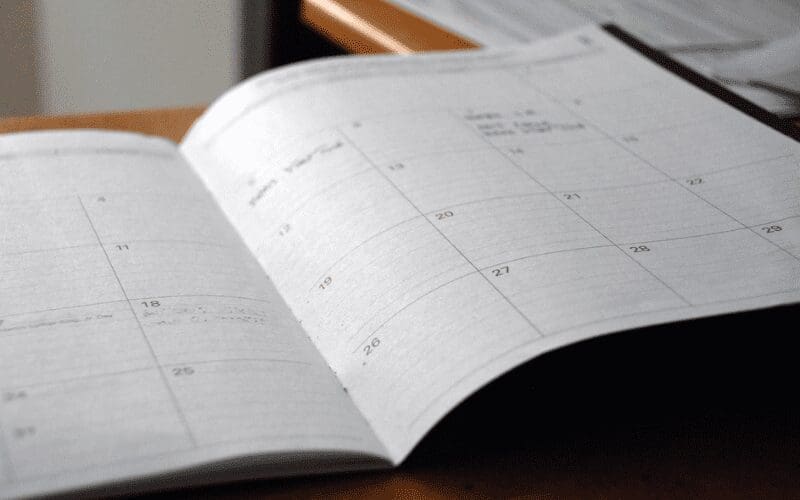
As the main point of contact for the cast and crew, the production coordinator is responsible for ensuring that everyone is where they need to be and when. Also known as the cast and crew call times.
They are also responsible for distributing the shooting schedule to all the appropriate team members. They are the main point of contact and are also responsible for helping to work around any scheduling issues or changes.
Transport

In addition, they also need to make sure the cast and crew are able to get to where they need to be. The production coordinator will often arrange for visas for cast and crew working internationally.
Also, they are responsible for transport to make sure everyone gets to a location on schedule so shooting can begin.
Equipment
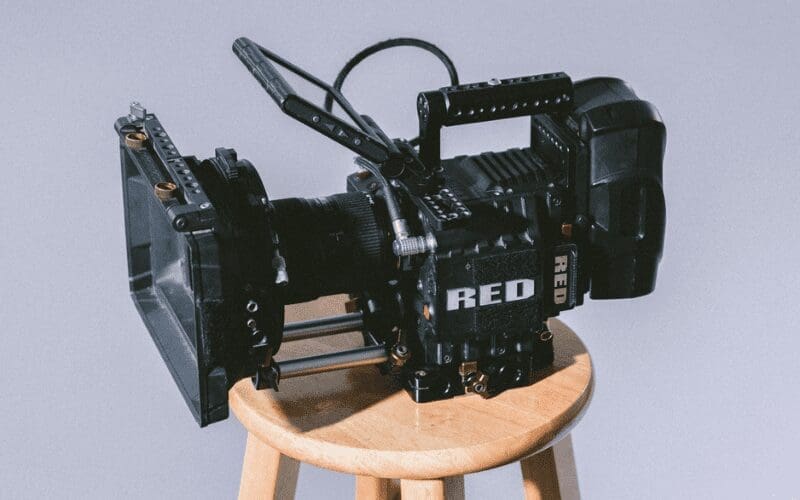
A production manager is also responsible for ensuring that the cast and crew have the equipment and resources they need.
This would include arranging for cameras or lighting equipment. Or perhaps booking time at a commercial studio. Their responsibilities also extend to making sure the production office has all the tools it needs, such as phones and materials.
As mentioned above, it often includes making sure that services, like catering and toilets, are on location.
Managing Changes

A film set is a multi-faceted beast that is constantly evolving. As the project continues, different cast and crew members come and go as the project moves along and there are multiple script changes and updates to the storyline.
A production coordinator is responsible for making sure that all new team members are on boarded properly. They are responsible for documenting any changes to the script or schedule, distributing them and communicating it to everyone involved. The production coordinator also has an army of assistants and PAs to whom they will delegate tasks.
Manning The Phones

The production coordinator is responsible for fielding new inquiries and returned calls associated with the film. They then have to make sure that messages get through to the right people.
Reporting

The production manager is also responsible for generating a number of different reports.
This includes financial reports to show that a production is on track to keep within budget, progress reports showing if a production is on schedule and also other administrative tasks associated with a film.
Wrapping

Finally, as the production comes to an end, the production coordinator will support the wrap of a shoot. This involves closing accounts with suppliers, paying final invoices, returning loose stock or getting rid of items they no longer need.
Ultimately, their job is to tie up the loose ends at the end of production.
Post Production Coordinator

Although most production coordinators work during the production phase (i.e. when a film is actually being shot), some will also work as a Post-Production Coordinator. This is a similar role in the sense that you work with multiple different departments putting a film together.
The post-production processes are very administrative and are centred around making sure that all paperwork is correct. Also ensuring the final video and audio masters are stored and that backups are properly maintained and catalogued.
Additionally, they act as an interface between different departments such as sound, colour, marketing, etc. They make sure the teams have the post-production facilities they need.
A post production coordinator will also get involved in booking working and preview screenings for key stakeholders.
How To Become A Production Coordinator In Film
A production coordinator is incredibly organised, very good at communicating and excellent at managing multiple tasks simultaneously.
As the job is mainly involved during shooting (and sometimes in post) – production coordinator jobs are typically gig-based and freelance. Basically, there are no set routes into the industry.
What Qualifications Do You Need To Be A Production Coordinator?

A-Levels or equivalents in film, media, art and design are certainly useful. Some websites also recommend combining the arts subjects with practical ones like business or maths.
There are also degree courses in film and production that will be very useful in ensuring a deep understanding of how the industry works.
Additionally, it will show how a production is put together as well as offer practical advice on how to build a network and find work.
You can also find apprenticeships in the UK such as the Creative Industries Production Manager (Level 7, England) and the Broadcast Production Assistant (Level 3, England) which can be very useful.
How To Become A Production Coordinator Without Qualifications

As mentioned above, there is no set route to becoming a production coordinator. Therefore, it is absolutely possible to do the role without any qualifications.
Generally, people looking to find work in the film or TV industries will need to start at the bottom in a relatively menial role. This includes jobs such as a runner.
As you gain experience, you can work your way up to eventually working in your desired role.
Where To Find Film Production Coordinator Jobs

There are some film production coordinator jobs posted in online forums such as LinkedIn or ScreenSkills.
However, a lot of production coordinators will find work based on referrals and recommendations, so networking is often really key.
Production Coordinator Salary

Production coordinators tend to be freelance so it is fair to say that salary brackets can be quite broad and of course how much work a they will take on will affect their take home salary.
That said, on average production coordinators in the US will earn in the region of $45k a year and in the UK it translates to around £30k.
Now You Know How To Become a Production Coordinator In Film
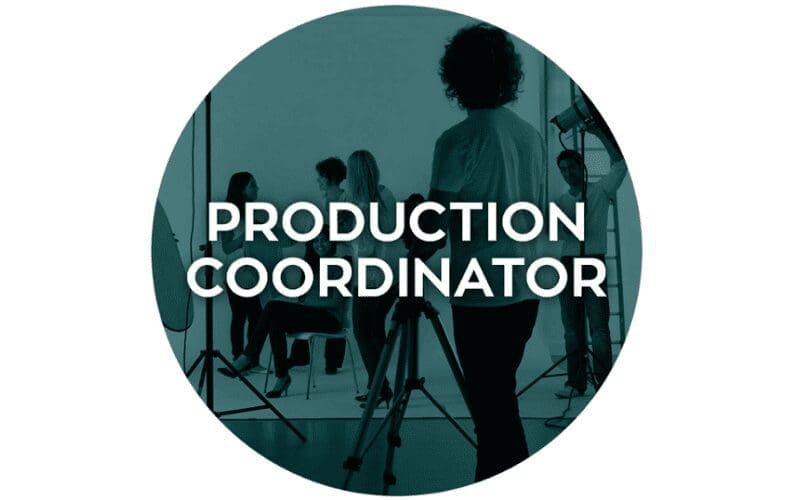
A production coordinator is a really exciting, complex and challenging role that is integral to the film industry. If you like working on lots of different projects, are great at organising and communicating and love movies, then this is a great job that gets involved in pretty much every aspect of the shooting phase of a movie.
Make sure that you head over to Мusic Gateway for more fantastic film-related content. You can read the following articles: How to Become a Filmmaker, the Best Lens for Filmmaking, Famous Movie Props, and so many more!
Are You A Filmmaker?
Need financial backing to support your project? Our film investment can back projects of all sizes from independent short films to major releases covering all corners of the globe. If that wasn’t enough, promote your work, list your upcoming films and allow fans to pre-order or buy them with your very own Showcase site. Finally, our concierge and service and extensive music library allow us to help you find music for your film. Check out our Music Licensing service to get started!






